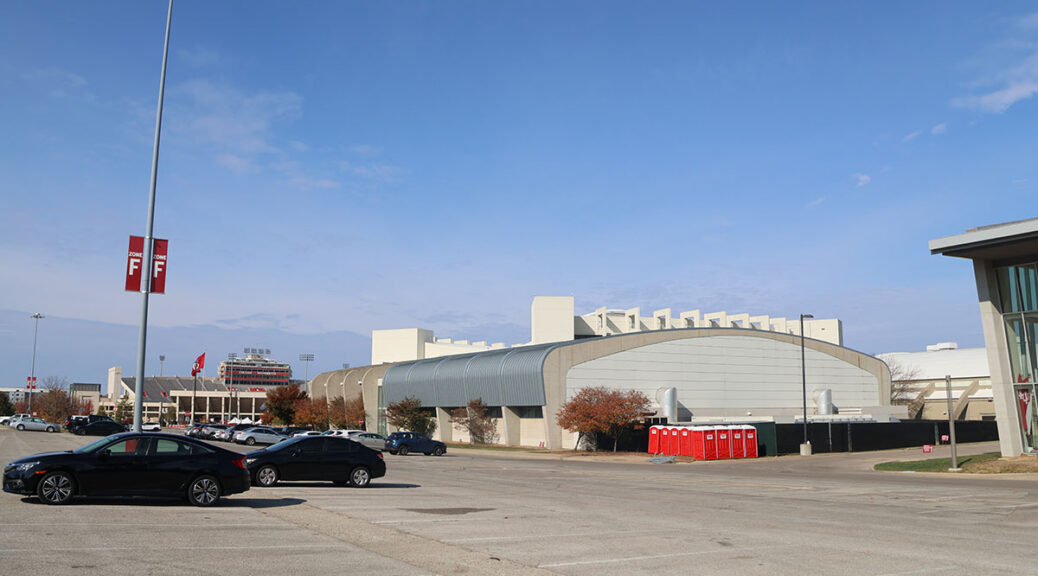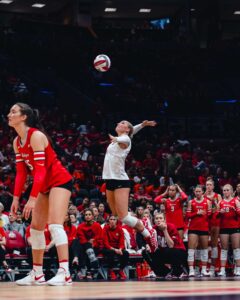
NCAA: NIL AND ITS BENEFITS TO COLLEGIATE ATHLETES
By Sydney Bailey, Keane Blackbourne, and Carson Hilbert
Name, Image, and Likeness brought along many benefits for student-athletes individually. In 2021, the Supreme Court made a landmark decision regarding NIL deals in the case National Collegiate Athletic Association v. Alston. This case entirely changed the game for college athletes as they were now allowed to make profit on their name, image, and likeness due to the opinion of the Court. The benefits that this case has on college athletes are plentiful, as they are now able to see money flowing straight into their pockets from NIL deals. Freshman Volleyball player at The Ohio State University, Olivia Hasbrook, shares her insight on how the new NIL ruling has positively impacted her as an individual.

Hasbrook quickly settled an NIL deal with Ozuna Fresh, an air freshening company, quickly following her arrival at Ohio State. Hasbrook states, “Ozuna Fresh has given me several free products that I use in my dorm and locker room that are really nice to have.” Aside from the products she’s received, Hasbrook addresses how her NIL deal has benefitted her financially as she explained, “Ozuna Fresh has given me a lot of opportunities for money with paid media day opportunities as well as connections with other athletes.” The NIL ruling has made several athletes’ lives easier as they no longer have to worry about financials while being an ‘unemployed’ college athlete.

NIL has helped many athletes to financially benefit off themselves. Dr. Clavio, a professor for IU and Director of the National Sports Journalism center, spoke about what NIL is and what it’s doing for athletes. NIL especially has given light to women’s sports with athletes like Caitlin Clark, Livvy Dunne, and Angel Reese have made a huge pathway for women colligate athletes.
“NIL has opened a door for women sports,” says Dr. Clavio, “It’s easier to view college athletes compared to five years ago.” Women’s sports due to NIL has made viewers more interested in women’s sports. Especially when rising stars in women’s college basketball such as Paige Bueckers and Flau’jae Johnson now starting to rise it could raise the standard even more for women’s sports.
Also, with the new settlement college athletes will receive more money after a judge granted a $2.78 billion legal settlement to those athletes. With this NCAA schools are going to be limited to spend around 23 million each year with the money of the cap rising each year. The schools will be restricted to pay around 22% of media revenue, ticket revenue, and sponsorships revenue with student athletes. This settlement means that athletes could get paid even more money than what they have been before if the cap gets higher and higher.
“There’s no legal basis for the amount the athlete can be paid,” says Dr. Clavio. With this information athletes could potentially paid millions or even and could be paid similar to what professional athletes are. This could be potentially very tricky for schools but positive for athletes as they don’t have to worry to much about their future careers if the athletes are being paid really good money.
Several strangers around Indiana University’s campus are asked about what they feel the benefits to NIL are. Their answers had great variety but shared a few common themes
With the turn in all these laws surrounding collegiate athletes being paid, many of them are now making upwards of hundreds of thousands of dollars for their representation of the universities as high-level athletes. While we can clearly see the benefit that this had for the student-athletes, it is also fair to say that it can be just as beneficial for the universities that are touting their big name athletes. Especially when there are big name athletes in smaller sports. Take Livvy Dunne for example. She is and was a very popular internet personality, but competes in gymnastics, a sport that isn’t terribly popular outside of the Olympics. However, LSU’s arena was nearly sold out in every one of their matches for the 2024 season. According to Voltedu.com, “With an online following in the seven figures, who is to say how big of an impact she had on ticket sales.” Since the schools themselves don’t have to pay the athletes, this comes as an advantage for both parties. Other athletes will also be more interested after seeing the opportunities that are available to them, raising the advantage even more by offering the chance for more talent or big names to represent their university.
###

